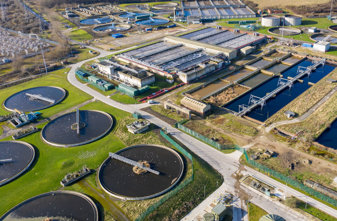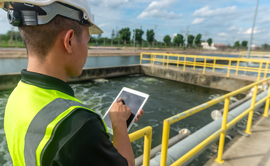Regulatory assurance: from compliance to confidence
Published: 1 October 2025
The water industry is undergoing a seismic shift. With the largest investment programme ever introduced through an asset management period (AMP), scrutiny from regulators, government, and the public has intensified. In this new landscape, regulatory assurance is no longer a back-office function, it’s a strategic imperative.
Why regulatory assurance matters more than ever
PR24 marked a turning point. It wasn’t just a price review; it was a call to action. Companies are now expected to deliver more, report more, and prove more. Performance is increasingly tied to financial outcomes, with rewards and penalties directly impacting customer bills. That means accuracy in reporting isn’t optional, it’s essential.

The scope of assurance has expanded dramatically. Beyond annual performance reports, companies now face requirements across strategic resource options, gated schemes, delivery plans, price control deliverables, and more. Add to that the preparation for PR29, water and drainage management plans (DWMPs), and Consumer Council for Water (CCW) reporting, and it’s clear: assurance must be embedded in every aspect of operations.
Turning audits into drivers of improvement
Too often, audits are treated as tick-box exercises. But the real value lies in using audit findings to drive continuous improvement. Every review offers insights that can strengthen controls, sharpen delivery, and align with regulatory expectations.
Robust assurance builds confidence in business plans and regulatory submissions. It ensures data is accurate, consistent, and traceable, from source to report. Without that traceability, companies risk not just technical errors but financial consequences and reputational damage.
Learning from other sectors
The water sector can benefit from cross-industry insights. Energy, transport, and financial services are leveraging digital tools and AI to transform assurance, spotting risks earlier, streamlining reporting, and improving accuracy. By adopting these innovations, water companies can move beyond traditional approaches and deliver smarter, faster, and more resilient solutions.
But insights only matter if they’re communicated effectively. Transparent reporting – from project teams to the board – builds trust with regulators, customers, and investors. It signals a culture of accountability and innovation, not just compliance.
Strong controls create value
Internal controls are more than checks and balances, they’re the foundation of confident decision-making. When embedded in everyday processes, they help companies manage risks and use resources wisely. Regulators increasingly reward strong governance with financial incentives, making good controls a source of value creation.
Better controls also lead to better decisions. With accurate, trusted information, leaders can move from reactive to proactive, aligning choices with customer priorities and long-term resilience. Automation plays a key role here, eliminating manual errors, speeding up reporting, and freeing up time for strategic insights.
Assurance as a strategic asset
To deliver high-quality assurance, companies must understand their key risks and apply proportionate effort. Evidence is critical – showing, not just telling, that processes are robust. Subject matter experts must be involved to explain and validate technical details.
Open dialogue leads to better outcomes. Planning ahead to set key dates and deliverables avoids last-minute stress and ensures smoother audits.
Our approach to assurance is rooted in the Three Lines Model from the Institute of Internal Auditors, and ISO 19011, the global standard for audit management systems. Their purpose is simple: to create, protect, and sustain value. We follow seven core principles and add an eighth: empathy. Recognising the pressures on teams, we prioritise wellbeing and collaboration, making audits a supportive process rather than a stressful one.
Delivering assurance at pace
In today’s fast-moving environment, assurance must keep up. That means:
- Early engagement: bringing assurance in at the planning stage to spot issues before timelines tighten.
- Proportionality: focusing on the most material risks to deliver confidence without slowing progress.
- Communication: sharing emerging findings early so teams can act quickly and avoid bottlenecks.
This approach turns assurance into a partner in delivery, not a hurdle.
Real-world impact
We recently supported Anglian Water, who were facing increased pollution events. The board needed assurance that their intervention programme would reduce risk.
We delivered three work packages:
- Governance and programme management: ensuring decision-making and management processes were robust.
- Value and benefit realisation: validating systems to track risks, benefits, and uncertainties.
- Financial optimisation: benchmarking costs and ensuring cost-benefit approaches were sound.
The result? Greater confidence in the programme’s effectiveness and clear recommendations for improvement.
Looking ahead
With regulatory change on the horizon, including the potential replacement of Ofwat, assurance will become even more critical. A more decentralised decision-making framework will require companies to provide higher levels of technical assurance. Those with solid frameworks and systems in place will be best positioned to navigate the transition.
The biggest opportunity for companies? To treat assurance as a strategic enabler. By embedding it into business planning, prioritising transparency, and investing in digital tools and multidisciplinary teams, companies can lead the way in regulatory assurance, creating value, building trust, and driving performance.
You might also be interested in...
Latest resources
Here to solve your biggest challenges and grow sustainable value
Our expert consultants are available to broaden your thinking, lead transformation, and help you achieve successful outcomes.
Contact our experts







